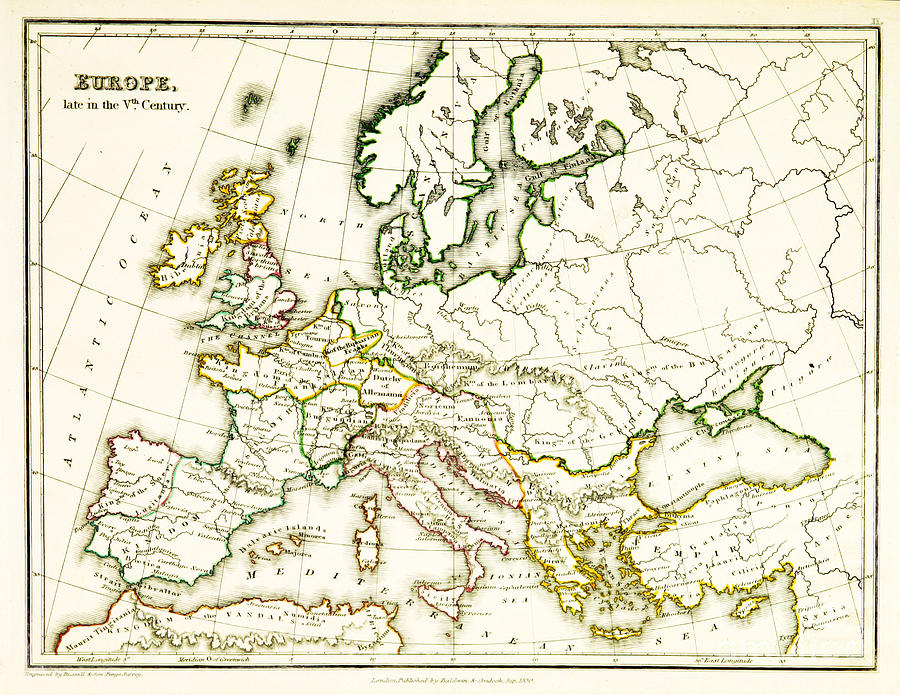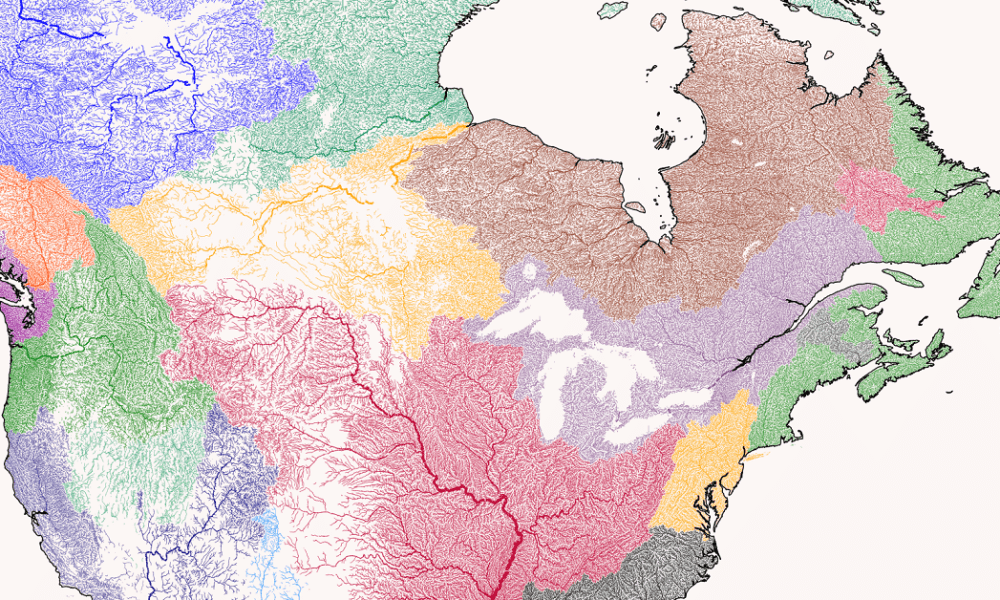Map Of Europe After Fall Of Roman Empire
The fall of the Roman Empire was a pivotal moment in history, leading to a tapestry of change across the European landscape. The emergence of new kingdoms and cultures marked this era of transformation, and visual representations of this period are fascinating artifacts that encapsulate the complexities of shifting powers.
Map Of Europe After The Fall Of The Roman Empire | Huckleberry’s Blog

This map vividly illustrates the expansive void left by the Roman legions, delineating the rise of burgeoning territorial entities. Kingdoms such as the Franks and Ostrogoths began to carve out their realms, illustrating the cacophony of tribal movements and feudal loyalties that flourished in this chaotic milieu.
Europe Map, After Fall Of Roman Empire Photograph by British Library

This photograph captures the geographical metamorphosis that Europe underwent post-Rome. Borders that were once well-defined became fluid territories, reflecting the struggle for dominance among various factions. The tumultuous landscape is a repository of stories waiting to be unraveled, rich with conflict and cultural amalgamation.
Fall Of Roman Empire Map – Map Vector

Examining this vector map allows one to appreciate the subtleties of the shifting demographics. The once-thriving urban centers of the Roman epoch faded into obscurity, leaving behind a patchwork of settlements struggling to adapt. It is a testament to human resilience amidst adversity, revealing how societies regrouped and evolved in response to their new realities.
Fall Of Roman Empire Map – Map Vector

This iteration of the map presents a compelling visual narrative of the epoch. One can almost hear the footsteps of early medieval wanderers traversing the fragmented territories, each seeking their fortune or crafting their legacy amid the remnants of Roman grandeur. The interplay of geography and history shines through as each line evokes the destinies of kingdoms yet to be defined.
Map Of Europe After The Fall Of The Roman Empire | Huckleberry’s Blog

This map encapsulates the waterways that were vital lifelines for trade and communication, symbolizing the connective tissues of developing cultures. As the river basins flourished, they became crucial arteries of economic and social interaction, paving the way for the eventual resurgence of European unity.
